Business
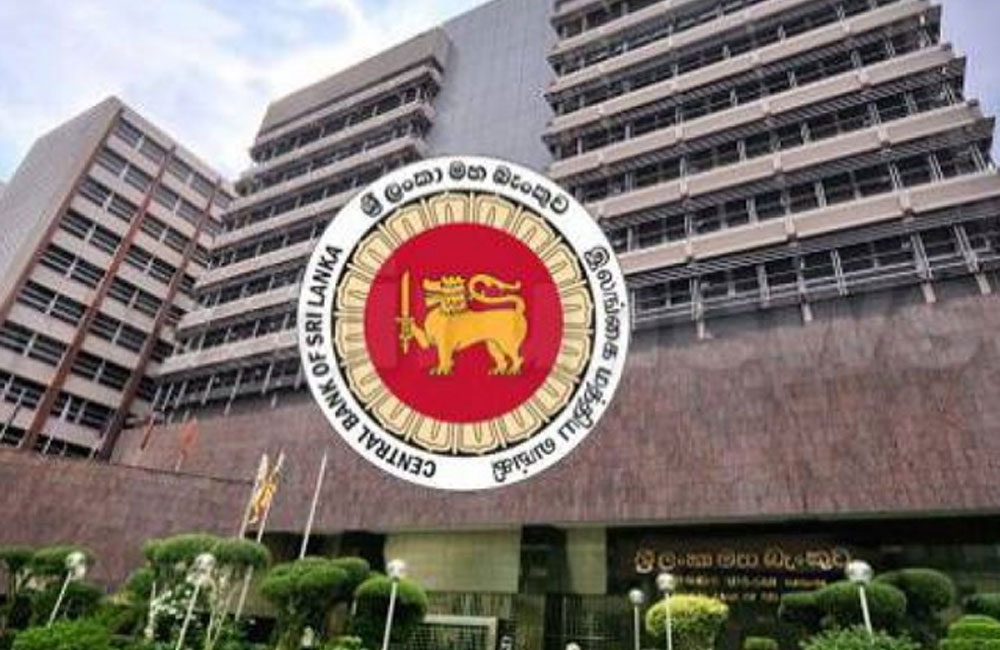
Errant finance companies face legal action for frauds
Rogue finance companies operating in the country are now being brought under intensified surveillance of the Central Bank and it’s taking necessary legal action as these firms have become a severe threat to the current financial system affected by the second wave of COVID-19. The Central Bank will be taking measures to broaden public awareness on the consequences of engaging in unauthorised financial activities by errant finance companies.
It has intensified surveillance in detecting unauthorised finance businesses and deposit taking while seeking public support to take appropriate action against such errant financial institutions.
All operations of Eyon Lanka Investment and Film Production International Company (Pvt) Limited have been stopped by the monetary regulator as this unauthorised finance company has carried out an illicit finance business.
The Central Bank has already issued freezing orders prohibiting the company soliciting and mobilising deposits or any funds in any other forms, disposing / alienating assets, entering into any transaction in relation to any account, property or investment.
The Colombo High Court has extended the freezing orders until 15.01.2021. Further, a report was sent to the Attorney General’s Department on 02.11.2020 requesting to institute criminal proceedings against the rogue finance company.
The Central Bank reiterates the requirement for enactment of a legal framework to regulate unregulated money lending activities so that a better and more effective regulatory environment is created for money lending institutions in the future.
Registration under the Finance Leasing Act, No 56 of 2000 (as amended) (the FLA) is mandatory to carry out finance leasing business and any person carrying out finance leasing business without such registration commits an offence under the FLA.
The said institution has not been registered by CBSL to carry out finance leasing business and therefore, any finance leasing business carried out by such institution constitutes an offence.
Over 9000 depositors including retired members of security forces have become destitute due to the sudden collapse of the company and the freezing of its operations by the monetary authority, several disgruntled depositors said.
A meeting between the representatives of depositors, management of the company and CBSL officials was held on Tuesday (8) and the implementation of a payment plan was taken up for discussion. But the Monetary Board at its meeting held recently has already decided that the submitted repayment plan was not acceptable, a CBSL public notice revealed.
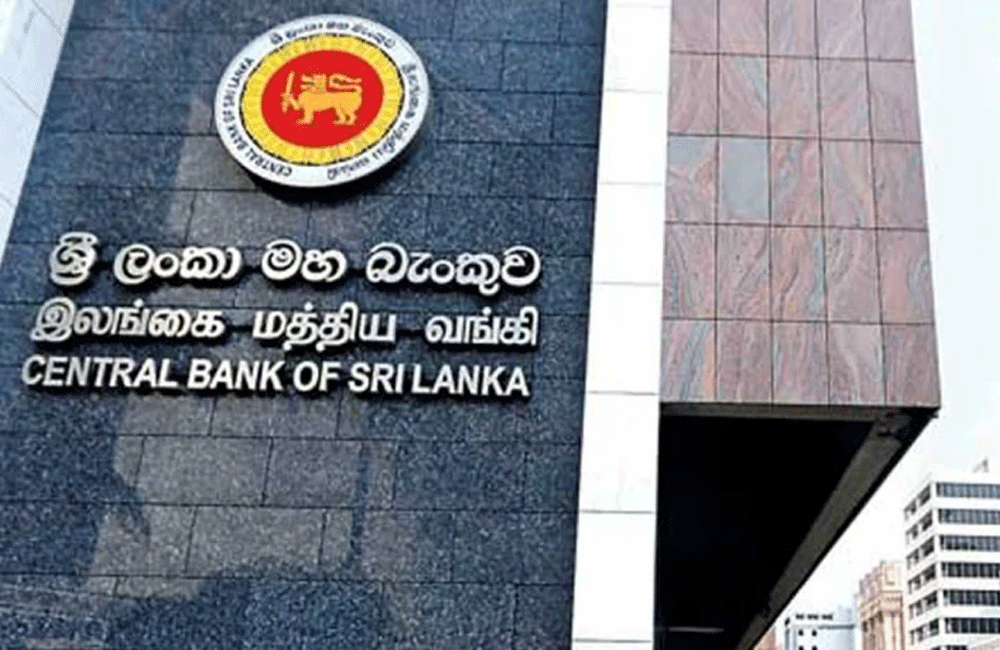
CBSL pushes for ‘RegTech’ products
Amidst the many fintech products in the market and awaiting approval, the Central Bank's (CBSL) Financial Intelligence Unit (FIU) is unhappy that there aren’t RegTech (short for Regulatory Technology) products to improve the way businesses manage regulatory compliance.
RegTech solutions enable the delivery of regulatory requirements more proficiently and effectively than fintech, a CB official said, adding that RegTech can assist financial institutions with KYC (know your customer), AML (anti money laundering) and cheque fraud.
Analysts say that as the Sri Lankan financial industry is not very aware of the RegTech products which are an advanced concept, foreign investors aren’t willing to invest here as the market is not as developed as say Singapore, Hong Kong etc.
A fintech sandbox, a framework set up by the Central Bank to allow small-scale, live testing of financial innovations by private firms in a controlled environment under CB supervision, was launched in February. Due to the COVID-19 situation no one applied, CBSL officials said.
Sri Lanka has about 20 fintech start-ups dealing mainly in digital payments and alternative finance, according to industry analysts. Fintech firms need to partner with commercial banks and then apply to test their products in the sandbox. Virus-free. www.avast.com

BOC faces management issues despite sterling financial performance
The downgrade of BOC’s Long-Term IDR and Viability Rating stems from the 27 November 2020 downgrade of the sovereign IDR to ‘CCC’, from ‘B-‘ and Fitch’s assessment of the operating environment.
BOC’s Long-Term IDR is driven by the bank’s intrinsic strength, as expressed by its Viability Rating. The ratings are constrained by the sovereign IDR.The downgrade and negative outlook on risk appetite and most of the financial profile factors reflect the downside risks to borrowers’ creditworthiness and the stability of the bank’s financial metrics stemming from the operating environment.
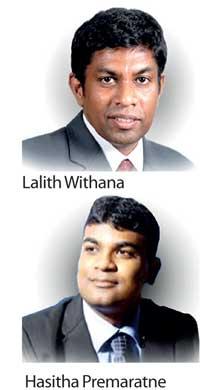
The two Non-Executive Directors, Lalith Withana and Hasitha Premaratne, have resigned from the board of directors of Bank of Ceylon (BOC), with effect from December 8, 2020.
Both Withana and Premaratne were appointed to the BOC board on January 14, 2020.
The downgrading of BOC and resignation of two directors took place amidst the better performance of the state bank amidst COVID-19 pandemic, a senior official said, expressing his dismay on the resignations of the two eminent directors of the bank.
Bank’s asset base increased by 15% to LKR 2.8 trillion as at the end of August 2020 from LKR 2.4 trillion as at the end of 2019.
Deposits of the bank were LKR 2.2 trillion by the end of August 2020, being the first Sri Lankan Bank to surpass the LKR 2 trillion landmarks, treasury data showed.
BOC recorded a profit before tax of LKR 12.9 billion in the first eight months of 2020, compared to the profit before tax of LKR 18.1 billion in the same period of 2019.
This was mainly due to accounting for the day one loss on COVID -19 moratorium and the increase in interest expenses in line with the growth of the deposit base

Vallibel Finance records steady performance weathering Covid-19 challenges
Amidst unprecedented disruption brought by the COVID-19 impact, Vallibel Finance has been able to record steady performance weathering many challenges.
Vallibel Finance continued to set the bar soaring with profits before tax (PBT) reaching a high of Rs. 890 Million for the first six months ending September 2020. Total assets crossed Rs. 52 billion growing by 4 percent; resulting in an impressive Balance Sheet, placing the company among Sri Lanka’s largest in terms of assets.
“Vallibel Finance has shown its resilience, owing to prudent management skills and sustainable pursuit of growth. Nevertheless, we consistently remain a step ahead of such external challenges by adopting prudent practices, anticipating customer needs and seeking opportunities to maintain sustainable competitive advantage,” Vallibel Group Chairman Dhammika Perera said.
"Deposits, the barometer of public confidence amassed to Rs. 30 Billion, growing exponentially by 8.81% over the previous period," Managing Director Jayantha S. B. Rangamuwa said.
Meanwhile, the company grew its loan book even during very challenging times by 4 percent reaching Rs. 41.8 billion from a previous Rs. 40.2 billion. Non-performing loans (NPL) ratio of 6.68% mutes testimony to the company’s legacy of financial stewardship during exceedingly challenging times which is far better than the industry average.
Being very optimistic about the outlook despite the current uncertain situation Vallibel Finance commenced its landmark seventeen story head office complex along with an uninterrupted branch expansion extending its roots to Ambalantota, Thambuththegama, Kohuwala and Ja-ela during the period.
Notably, Vallibel Finance has been honored and awarded as the Brand of the Year 2020 in Sri Lanka, while upgrading its brand rating to “A+“, being a strong and respected industry name. Also, Vallibel Finance has once again been listed as one of the Great Workplaces to work in Sri Lanka for the second successive years of 2019 and 2020.

South Africa keen to create a market for Sri Lankan jewellery
South Africa has sought Sri Lanka's assistance to improve their jewellery industry, the outgoing South African High Commissioner in Colombo Robina P. Marks said. She revealed this when she called on Foreign Minister Dinesh Gunawardena at the Foreign Ministry on December 04.
The High Commissioner apprised the Minister that the Government of South Africa was keen to obtain assistance from Sri Lankan craftsmen to develop the Jewellery Industry in South Africa.
South Africa is currently Sri Lanka’s major source of coal imports, accounting for most of the country’s imports from the region. Investment, tourism, and migration flows have also grown in recent decades, though they remain small in terms of total flows to Sri Lanka.
Foreign Minister Gunawardena sought South African expertise in the canning industry for the food and vegetable industry in Sri Lanka, as around 40% of the harvest is wasted in the country due to technology gaps in this field.
The Minister also highlighted the importance of enhancing cooperation in trade, investment and tourism sectors between the two countries. It was also discussed on further expanding tea exports to the African continent through the South African distribution network.
The outgoing High Commissioner also informed that the South African supermarket chain, SPAR has made arrangements to expand up to 20 units in Sri Lanka and also emphasised on the availability of the containers that import goods from South Africa to be used to export Sri Lankan products to the South African Market upon their return. The Foreign Minister paid a tribute to the High Commissioner for her immense contribution in further consolidating relations between Sri Lanka and South Africa in all spheres.
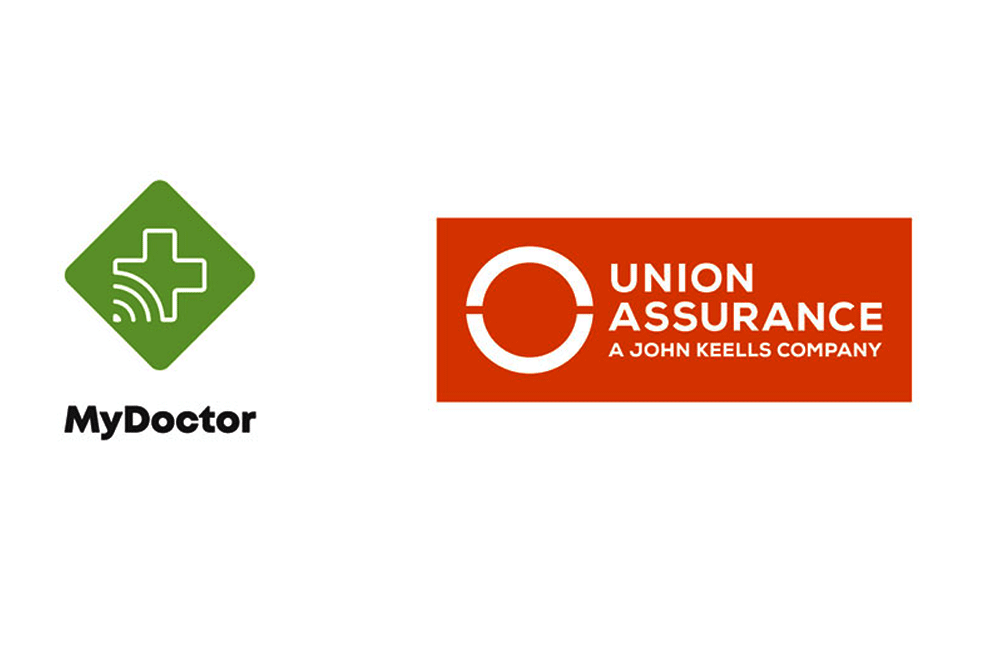
MyDoctor Partners Union Assurance to Provide Unlimited Doctor Consultations
Backed by Sri Lanka's premier connectivity provider, Dialog Axiata PLC, MyDoctor, Sri Lanka's pioneering digital health solution provider, recently partnered Union Assurance to provide unlimited doctor consultations for Smart Health Premier policy holders.
With this partnership, Union Assurance Smart Health Premier Policy holders are eligible for unlimited consultations with doctors via the MyDoctor platform, enabling them to receive immediate medical advice for any health issues at any time, from anywhere.
As an added benefit, qualified doctors registered with MyDoctor can proactively call their patients to ensure their health and wellbeing. As a result of this collaboration, patients are enabled and empowered to receive seamless digital healthcare services at their convenience.
This partnership will further amplify Union Assurance's quest for digital-led innovations which will empower and better serve Sri Lankan communities. MyDoctor combines visionary thinking and cutting-edge technology in order to present an integrated suite of health and medical services at a patient's convenience.
A leading digital healthcare provider in Sri Lanka, MyDoctor enables patients with video and audio consultations with qualified doctors, mobile lab facilities, online lab reports, doorstep medicine delivery, and chronic disease management facilities.
With a 24/7 operational call centre to receive consultations, Dialog customers can dial the toll-free hotline 2407 and non-Dialog customers can dial 0117247000 from any network to consult a doctor at any given time.
In addition to the above, Dialog customers enjoy a host of benefits on MyDoctor, including subscription packages with the option of receiving unlimited doctor consultations as well. Smartphone users can simply access services via the MyDoctor Mobile App.
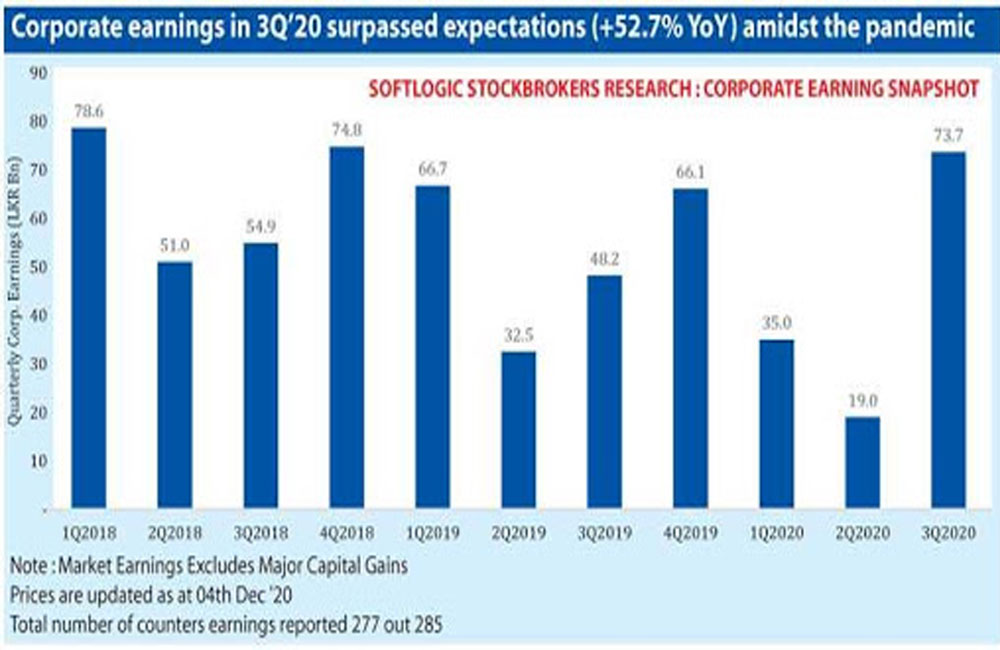
Corporate earnings surpass expectations - Report
Earnings of listed companies in the third quarter of 2020 have increased to Rs. 73.7 billion, the highest for a three month period since late 2018, and reflect significant recovery after the resumption of the economy following the COVID-19 first wave-induced shutdown.
Softlogic Stockbrokers Research which released its analysis of results of 277 companies (out of 285 listed) described the corporate earnings in 3Q 2020 as having “surpassed expectations” amidst the pandemic.
The Rs. 73.7 billion combined earnings reflected a robust 53% gain year-on-year and a massive 287% jump in comparison to the 2Q figure of Rs. 19 billion, and more than double the 1Q of 2020.
The previous highest for a quarter was Rs. 74.8 billion achieved in the 4Q of 2018.
From 2018 to date the 3Q of 2020 is also among the three best performing quarters.
“Capital goods (Rs. 8.47 billion, up 106%), Materials (Rs. 7.1 billion, up 155%), and Food, Beverage and Tobacco (Rs. 17.1 billion, have gone up 95%), largely contributed to earnings improvement.
Banks (Rs. 13.1 billion, down 17%), Real Estate (Rs. 1 billion, down 52%) and Consumer Services (loss of Rs. 5.5 billion as against loss of Rs. 22 billion), dragged down earnings growth in 3Q’20,” Softlogic Stockbrokers Research said.
It said the banking sector earnings fell amidst higher impairment provisioning and margin contraction; however the sector’s cumulative 4Q earnings were Rs. 58.5 billion, up 6% Y-o-Y.
Capital Goods sector earnings were up 106% on the back of import protectionism and pent-up demand following the April-May lock down, Softlogic Stockbrokers Research said.
Consumer Durables and Apparels earnings improved 32% Y-o-Y to Rs. 1.1 billion, reflecting resilient performance in 3Q’20 amidst the pandemic.
The 95% increase in Food, Beverage and Tobacco earnings was due to the inelastic nature of the products despite lower consumer spending ability.
Softlogic Stockbrokers Research also said Materials sector earnings improved significantly due to the surge in demand for construction materials and exported materials.
It said the Retailing sector witnessed a turnaround in 3Q’20, with the sector turning profitable to Rs. 1.8 billion compared to a loss of Rs. 24 million in the corresponding quarter of the previous year.
Telecommunication sector earnings surged 134% Y-o-Y in 3Q’20 to Rs. 6.96 billion on the back of improved data consumption, rupee appreciation and reduced operational expenditure.
Transportation sector earnings spiked 578% Y-o-Y to Rs. 4.8 billion on the back of the extraordinary earnings boost witnessed by Expolanka Holdings PLC, which reported earnings of Rs. 4.5 billion as against a loss of Rs. 830 million.
Utilities earnings grew 70% Y-o-Y in 3Q’20 to Rs. 817 million amidst favourable weather conditions resulting in better than expected power generation, Softlogic Stockbrokers Research said.

Non-life insurers expect stalled premium growth
As the COVID-19 pandemic rages on, price competition among non-life insurers in Sri Lanka is likely to intensify as a ban on auto imports and an economic downturn hinder premium growth according to a recent analysis from Fitch Ratings. Fitch believes that new business premiums from motor insurance - which accounted for around 60% of the non-life insurance industry's gross premiums - will contract in 2020 with the reduction in new vehicle registrations.
It stated that the release of the limited new-vehicle stocks into the market would be insufficient to offset the contraction in new business premiums.
Moreover, some policyholders are switching to third-party insurance from comprehensive coverage and allowing policies to lapse due to the economic stress caused by the pandemic, which will impede non-life insurers' business growth.
Data from the Insurance Regulatory Commission of Sri Lanka (IRCSL) revealed that the total non-life premiums and premiums from motor insurance fell by 8% and 4% year-on-year respectively in 1H2020.
Growth in the industry's motor premiums slowed to 2% in 2019 from 16% in 2016 due to the government's efforts to limit the outflow of foreign exchange by curtailing vehicle imports.
Fitch noted that the recent ban on auto imports came in the wake of the pandemic as the government tried to control currency depreciation by supporting foreign-currency reserves.
Sri Lankan policymakers recently also indicated that this ban might continue at least over the near term given the economic stress caused by the pandemic.
Therefore, it is expected that the constrained top-line growth, potential amplification of price competition as well as lower investment returns will put pressure on the earnings of non-life insurers in Sri Lanka.
This pressure will, however, be softened by the temporary reduction in claims during the lockdown period, particularly from motor insurance.
(Asia Insurance Review)
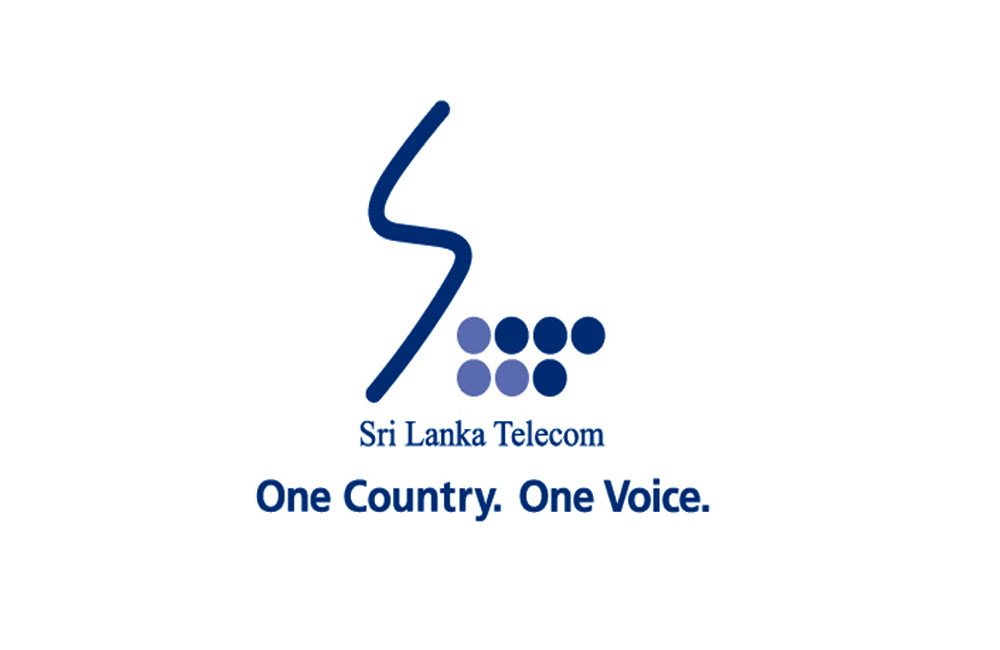
SLT initiates 3-year strategic business plan to meet changing needs
Sri Lanka Telecom PLC (SLT) has initiated a 3-year strategic business plan continuing its commitment towards customer value propositions, SLT sources revealed.
During the COVID-19 pandemic emerging technologies became a catalyst for the telecom industry to prefer digital platforms, and deliver emerging digital experiences to changing consumer demands in an unprecedented way, a senior official of the SLT said .
The SLT’s board of directors has taken a decision at its meeting held on November 27 to initiate a 3–year Strategic Business Plan for SLT Group and have detailed business plans for the year 2021.
It has approved the provision of 5,000 FTTH (fiber-to-the-home) new connections to Sri Lanka Telecom Services Ltd. Insurance cover has been introduced for the first time in SLT history to cover property, risks, cyber security risks, and commercial general liabilities.
This will help SLT to ensure its business continuity and develop customer confidence while complying with industry best practices, standards, and requirements of SLT strategic business partners and customers.
These details were disclosed in a memorandum (Ref No 01/2020) sent to all SLT employees on November 27 by SLT CEO K.A. Kiththi Perera outlining the board decisions taken on the same day.
Accordingly the SLT Board has approved the new SLT Group Organisation Structure which was developed by consolidating Finance, Human Resources, Legal, and IT/Cyber security functions as group functions.
Measures will also be taken to restructure SLT subsidiary companies and a new leadership team was appointed for SLT Services, which is better aligned with business interests and its execution within the SLT Group.
The SLT board decided to transfer all remaining SLT Human Capital Solutions (Pvt) Ltd (HCS) staff to Talent-Fort (which provides HR solutions) and close HCS business before the end of 2020 as previously agreed with trade unions, he revealed. Existing procurement processes have been reviewed in view of eliminating inefficiencies in the process, whilst strengthening good governance and transparency.
This will help SLT Group to realise its business objectives by fast-tracking procurements for key projects and programmes and implement a succession plan for senior management positions and such a programme will be launched to implement the same.
The SLT Board approved the establishment of the Research and Development Division and decided to provide necessary resources for research activities in view of creating value for SLT group business, he disclosed
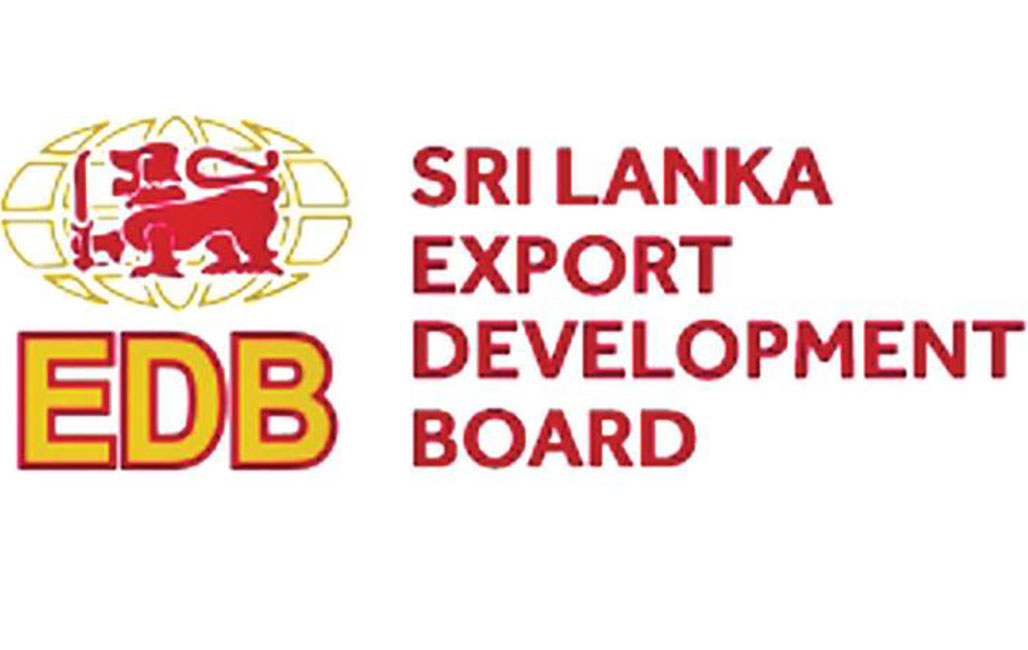
EDB pushes for greater product and market diversification
Sri Lanka will be embarking on a greater product and market diversification programme to increase the country’s exports in the new near normalcy situation following the COVID-19 crisis, Export Development Board (EDB) Chairman Prabhash Subasinghe said. EDB Chairman has renewed his call for export diversification to enhance Sri Lanka’s foreign exchange earnings amidst COVID-19 challenges.
He stressed the need to focus on export products and market diversification which is seriously lacking today.
Whilst appreciating that the US and the EU are the largest markets, the country needs to now create a significant export market in Asia including China.
"The China FTA will certainly help in this regard. Export product diversification must simultaneously happen so that we can create more billion-dollar industries for Sri Lanka," he added.
Exports in August were US$ 947.7 million, down by 19% from a year earlier.
EDB said despite the decline in exports, some products, like coconut-based products, electronics and electronic components, spices and essential oils, and food and beverages, recorded a positive growth of 22.88%, 8.32%, 19.4%, and 11.45%, respectively, in August as against a year earlier.
Export earnings for January to August were US$ 6.4 billion down by 19% from US$ 7.9 billion in the corresponding period of last year. EDB however, said it was an improved performance, compared with the decline of 21.08% recorded in January to July.
"However, EDB is being watchful of the months ahead whilst understanding the impact of COVID-19 on our key markets of US and Europe,” Subasinghe said.
Export earnings from apparels and textiles declined by 11.99 % to US$ 438.34 million during the month of August, compared with US$ 498.03 million recorded in August 2019. In apparels, there was a 6.15% decline recorded in August in comparison to July.
Despite the decline in the sector, earnings from exports of made-up textiles increased by two-hundred-fold in August 2020 in comparison to August 2019.
In addition, export earnings from rubber and rubber-finished products have decreased by 2.71 % Year-on-Year (Y-o-Y) to US$ 72.53 million in August, due to bearish performance in exports of pneumatic and retreated rubber tyres and tubes, gaskets, washers, seals etc., of hard rubber.
However, exports of industrial and surgical gloves of rubber have increased by 36.19% Y-o-Y to US$ 23.07 million in August.
Export earnings from tea in August, which made up 12% of the merchandise exports declined by 13.27% Y-o-Y to US$ 102.97 million and the export volume also declined by 16.01% in August 2020, compared to August 2019. The decline was mainly due to lower demand for tea from Iran and Iraq.

Government urged to strengthen the back end structure of agriculture sector
The government has been urged to strengthen the back end structure of the local agriculture sector by identifying the key points of both public and private institutions and addressing them by actively engaging in discussions with relevant stakeholders of the industry.
This appeal was made by Sunshine Holdings Group Managing Director Vish Govindasamy at the Sri Lanka Economic Summit ‘Road-map for Takeoff: Driving a People-Centric Economic Revival’, organised by the Ceylon Chamber of Commerce (CCC),
Govindasamy stressed that fortifying this framework would prepare the agriculture sector to leverage numerous post-COVID opportunities, bring prosperity for all parties involved and make the sector resilient for any future disruption.
“COVID-19 has brought several opportunities for the Agri sector, and the government and private sector have ambitious plans on being self-sufficient in agriculture, dairy and fishery.
The government, with right inputs coming from industry stakeholders, has to re look at these processes and understand where the gaps are.
Bridging these gaps will not only prepare the Agri sector to latch on to post-pandemic opportunities but also make the sector more resilient to change,” commented Govindasamy.
Taking the dairy industry as an example, Govindasamy said, “The country has a great vision for the local dairy industry intending to make Sri Lanka self-sufficient in milk by 2023.
However, the backend framework has to be perfect before even try to bring a herd. Also, the animals need to have enough feed, which means that we have to clear land for farmers to grow.
This needs to be done through a transparent land clearing process. Furthermore, the industry needs to deploy enough machinery and bring in modern technologies to meet this target.
There are so many aspects to be looked at from a back-end operations perspective to make front-end operations of the dairy industry successful,” said Govindasamy.
During the panel discussion, Govindasamy praised the government for the measures taken to uplift the agriculture sector including the recent pledge by President Gotabaya Rajapaksa on empowering the local dairy industry and increasing domestic liquid milk production in the next decade.
He commended the initial steps that the Ministry of Agriculture has taken to modernise the existing animal quarantine laws.

Work to rule from Monday: SLT trade union wants salary anomalies resolved
The engineers of Sri Lanka Telecom (SLT) are to launch a work to rule campaign demanding to settle the long standing salary anomaly on Monday (14), for the first time since the induction of the new president, a SLT union leader said.
The Telecommunication Engineers’ Union (TEU) has taken this decision as the new management of SLT has failed to heed their representations with the aim of improving the dwindling financial situation and productivity eliminating corruption of the company, he disclosed
Without considering implications on administration, financial, productivity and all aspects of future sustenance, SLT top management has taken several decisions in favour of the whims and fancies of some top corrupt officials, the President of the trade union Eng. Samantha Ruwanpathiranaalleged.
TEU has always extended its fullest support and cooperation to realise goals and objectives of SLT through the contribution of members who hold a majority of management positions in SLT, he stated in a letter sent to the CEO of Sri Lanka Telecom.
TEU always tries its level best to resolve issues amicably through negotiations before opting for trade union actions, he said adding that TEU clearly clarified the salary anomaly within Grade A1 to A5 engineers in SLT with possible proposals to resolve the same.
During the last meeting with the Group CEO and CEO SLT, on 10th September 2020, they conveyed to TEU that the board paper which included proposals to resolve the salary anomaly of engineers, submitted to the last board meeting was not accepted, TEU claimed.
TEU believes that the suggestions/directions given at the board meeting is merely aimed at dragging time without a targeted outcome.
Hence TEU has informed SLT CEO that engineers are compelled to declare a work to rule campaign starting from 14th September 2020, until the salary anomaly of engineers is resolved. TEU believes that the management still possesses ample time to resolve the issue without causing disruptions to the normal operations of the organisation and its customers.
TEU says their trade union action has been launched in absence of due and timely attention of the management and that they should be held responsible for any repercussions.
Page 7 of 28